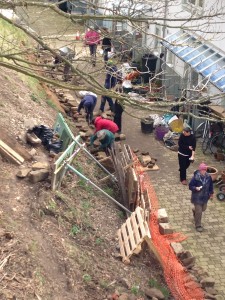Waste and globalised inequalities. The case of e-waste
Tuesday 26 March 12 – 1.30 C37/40 Charles Carter building
Stefan Laser, Dept of Sociological Theory, Kassel University
Waste is inherent to the global economy. In fact, as argued by scholars from waste/discard studies, we are now living in a permanently polluted world. This has been suspected for quite some time now, also induced by spectacular public narratives (e.g., on a so-called garbage crisis). An often recurring feature of such accounts has been its tendency to make all people equal in face of humanity’s danger to drown in its own waste. It is a powerful narrative, still fetched every now and then. Think of recent discussions around plastic pollution in the oceans. Yet it is as wrong today as it was 30 years ago. There is nothing (normatively) equal in the way people are entangled in and affected by the production of waste and processes of wasting. The consequences of waste and pollution are shared unequally, laying the ground for vast injustices.
In this presentation, I will discuss this problem through my research on electronic waste (or e-waste). I will focus on a prominent “solution” to “the e-waste issue”, that is, high-tech-recycling (which, e.g., occurs in the following forms: optimising production networks, enforcing stricter collection schemes, pushing towards professional shredding and recycling equipment, formalization of the informal sector). Today, the push towards high-tech is the most dominant strategy to tackle the e-waste issue, but it produces several problematic side-effects (unintended as well as intended side-effects). Here, in fact, we can see how inequalities are produced and re-produced. At the heart of this is a lack of democratic negotiation, which is also the theme with which I will end my presentation: a call for more democratic and radical approaches towards a reorganization of the economy.
Creating new local infrastructure fit for the 21st Century
Thursday 28 March 12 – 1.30 C37/40 Charles Carter building
Michael Hallam, The Small Green Consultancy, Local Loop, and the Ethical Small Traders Association
Simon Grant, Lancaster Cohousing
We see national and international infrastructures of various kinds as meeting people’s needs less and less, in widening areas of life. Neither globalised business nor the nation state are delivering anything sustainable. We believe that new regional and local initiatives, while perhaps more promising, will only succeed in conjunction with the kinds of personal and interpersonal growth that are being encouraged by many small organisations, in Lancaster as in many other corners of the world. After painting a picture of this kind of “inner” or psychological “infrastructure”, we will ask those present to imagine and share what might then become sustainably possible, starting with here and now.

